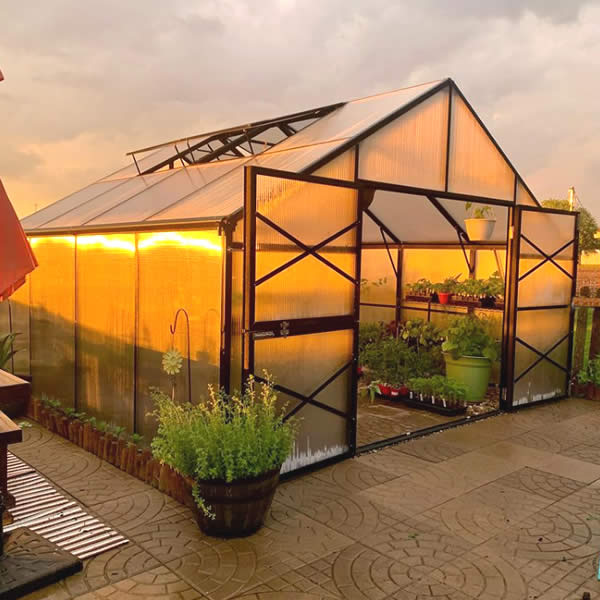Greenhouse Farming: Making The Most Of Plant Returns and Sustainability
With controlled settings and decreased water use, greenhouse farming provides the excellent service for year-round manufacturing of fresh produce. Discover the benefits of greenhouse farming and start reaping the benefits today!
Benefits of Greenhouse Farming
Are you questioning what makes greenhouse farming so beneficial? One of the significant advantages of greenhouse farming is the capacity to manage the environment in which crops are grown.
An additional benefit of greenhouse farming is the reduction in water usage. By making use of water more effectively, greenhouse farming aids to preserve this precious resource.
In addition, greenhouse farming permits much better parasite and disease monitoring. With the controlled setting, it is easier to stop and regulate the spread of insects and conditions. This minimizes the demand for hazardous chemicals, making greenhouse-grown crops much safer and a lot more eco-friendly.
Additionally, greenhouse farming provides defense versus severe weather events. Crops grown in greenhouses are shielded from heavy rain, solid winds, and hailstorms, which can harm or damage outside crops. Monarch Commercial Greenhouse Utah. This security makes sure a much more trustworthy and secure plant return, also during unforeseeable weather condition problems

Optimizing Crop Yields With Regulated Settings
To make the most of plant returns in greenhouse farming, you can achieve optimal outcomes by managing the atmosphere. By meticulously managing aspects such as temperature, carbon, light, and humidity dioxide degrees, you can produce the ideal conditions for your plants to prosper. One of the key benefits of greenhouse farming is the capability to manage these ecological factors, permitting you to customize them to the particular demands of each crop. You can adjust the temperature level to promote faster development during the day and lower it a little at evening to mimic all-natural fluctuations. Likewise, you can control humidity degrees to stop conditions and make sure correct transpiration. By offering the appropriate amount and quality of light, you can prolong the expanding period and increase yields. In addition, by controlling co2 levels, you can enhance photosynthesis and motivate strenuous growth. By carrying out these regulated atmospheres, you can make the most of plant returns and attain consistent, top notch fruit and vegetables throughout the year.
Promoting Sustainability Through Greenhouse Farming
Make the most of sustainability in greenhouse farming by carrying out reliable resource monitoring techniques. Integrating lasting techniques in greenhouse layout, such as using energy-efficient materials and optimizing all-natural lights, can further enhance sustainability. By embracing these resource management techniques, you can add to a much more lasting future in greenhouse farming.
Minimizing Water Use in Greenhouse Farming
By carrying out efficient water management methods, you can considerably lower water usage in greenhouse farming. Furthermore, surveillance and managing the humidity levels inside the greenhouse can stop unnecessary water loss. By adopting these water-saving methods, you can lessen water waste, preserve sources, and create a more lasting future for greenhouse farming.
Year-Round Manufacturing of Fresh Generate in Greenhouses
You can attain year-round production of fresh fruit and vegetables in greenhouses by applying effective self mowing lawn mower farming techniques. Greenhouses offer a regulated atmosphere that permits you to expand plants despite the external weather condition conditions. One vital strategy for year-round production is utilizing fabricated lights. By supplementing natural sunshine with fabricated light, you can extend the growing period and guarantee constant growth throughout the year. LED lights are frequently made use of in greenhouses due to the fact that they are energy-efficient and provide the best spectrum of light for plant growth. Additionally, proper temperature level control is essential for year-round production. Greenhouses can be geared up with heating and cooling systems to maintain optimum temperatures for various crops. This ensures that plants can thrive also throughout the chillier months. One more essential element is irrigation. By utilizing innovative watering systems such as drip watering or hydroponics, you can effectively supply water to your plants while lessening waste. It is important to regularly check and handle diseases and parasites. Carrying out integrated parasite administration techniques and exercising excellent health will aid secure your crops and preserve their health throughout the year. By applying these techniques, you can optimize the efficiency of your greenhouse and appreciate a consistent supply of fresh produce all year long.

Final Thought
To conclude, greenhouse farming provides various benefits for maximizing crop returns and advertising sustainability. By utilizing controlled atmospheres, farmers can enhance expanding problems and boost performance. Additionally, greenhouse farming permits decreased water use, making it an eco-friendly selection. Moreover, the capacity to generate fresh produce year-round in greenhouses guarantees a consistent supply of healthy food. Generally, greenhouse farming is a reliable and sustainable method for fulfilling the needs of an expanding population while minimizing environmental influence.
One of the major benefits of greenhouse farming is the capacity to manage the atmosphere in which plants are phalaris grass grown.To optimize crop returns in greenhouse farming, you can accomplish optimal outcomes by managing the setting. One of official website the vital benefits of greenhouse farming is the ability to manage these environmental variables, enabling you to customize them to the certain needs of each plant.By carrying out efficient water monitoring techniques, you can dramatically minimize water use in greenhouse farming.In final thought, greenhouse farming provides many advantages for making the most of plant returns and promoting sustainability.